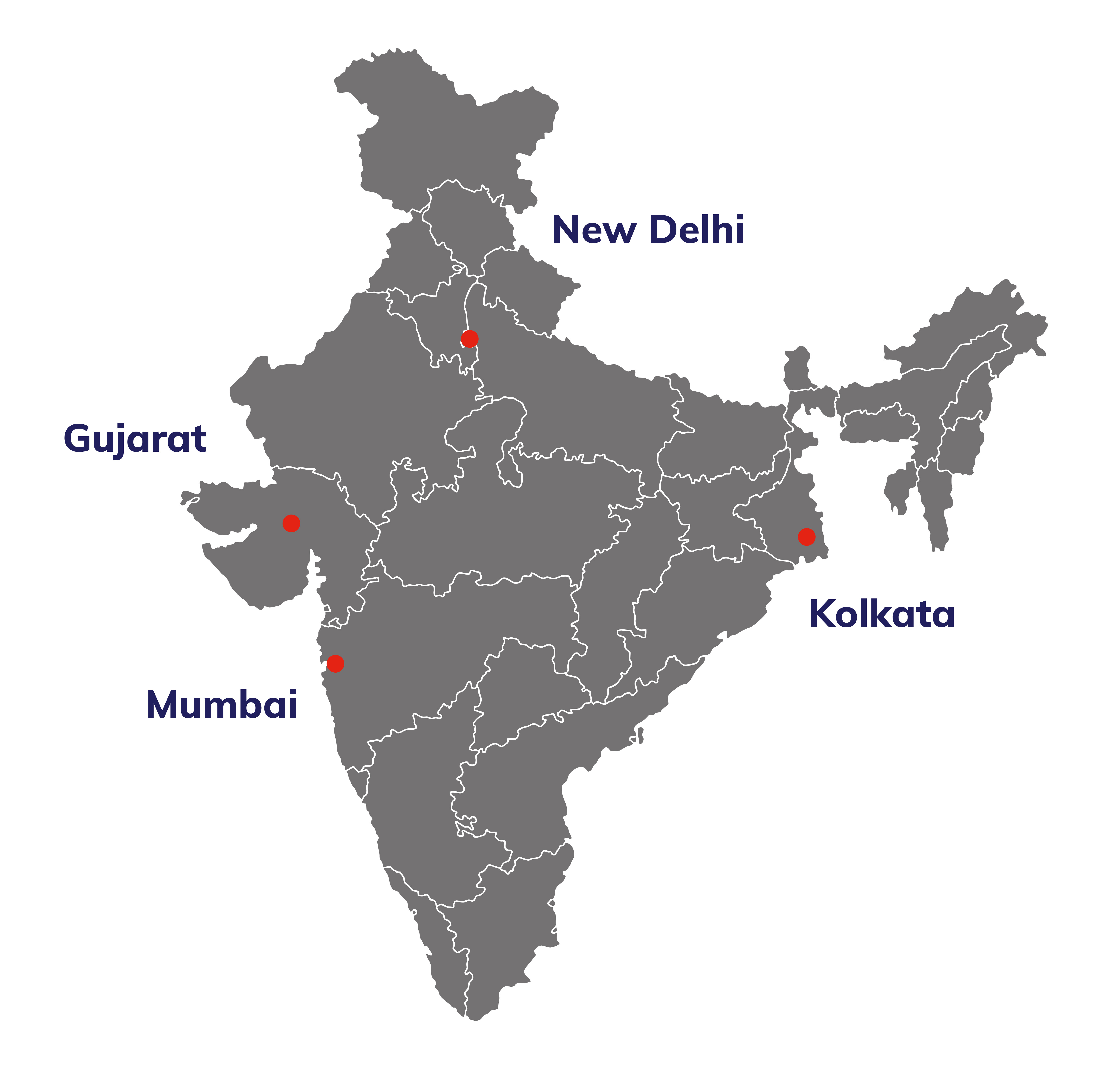Countries:
India
Status:
Completed
Sector:
Finance
Low-carbon policy
Supporting Indian banks, financial institutions and the Reserve Bank of India (RBI) to integrate climate risks into their financial decisions.
Currently, Indian banks direct significant private and public funds to carbon-intensive assets and industries. To help reduce emissions and support the country’s climate targets, finance needs to be systematically shifted from high-emission investments to low-carbon alternatives – supported by two key objectives:
This project was delivered by Overseas Development Institute (ODI) in partnership with auctusESG and Climate Bonds Initiative.
“It is well-known that capacity building is perhaps the most important cog in the wheel of managing climate risk. At this juncture I’m delighted to share with you that your policy recommendations are pretty much in line with our thought processes.”
Mr. Saurav Sinha
Executive Director,
Reserve Bank of India
“The training was a great platform for individuals of different departments to come together and initiate a dialogue on the importance of integration of ESG risks and opportunities intaking decisions.”
Training participant
(Axis Bank)

Finance professionals surveyed to map current knowledge of risk management and credit lending staff in the participating institutions
Indian financial institutions supported building their capacities and establishing the systems necessary to respond to climate change
Members of staff in risk management and credit lending departments trained on integrating climate risk into financial decisions
Priority policy recommendations identified for the RBI’s climate risk engagement, including prudential regulation, credit guidance and foundational policy types
This project was unique in India since it brought together the financial system’s five critical actors (policymakers, regulators, state governments, banks and DFIs) to tackle climate-related financial risks.
The project conducted a landscape assessment to map the current knowledge of risk management and credit lending staff in the participating institutions. Of the finance professionals surveyed, findings highlighted knowledge gaps in ESG and climate risks across all targeted financial institutions, as well as the lack of systematic application of these concepts and methodologies to assess climate risks.
These results were critical in developing tailored content for training modules delivered to the targeted banks, with 196 staff in the risk management and credit lending departments of 10 Indian FIs attending training, including: Axis Bank, Bandhan Bank, HDFC Bank, ICICI Bank, IndusInd Bank, National Bank for Agriculture and Rural Development (NABARD), Punjab National Bank, SBI Mutual Fund, State Bank of India and SEWA Bank.
Additionally, the project supported RBI in formulating suitable regulatory options for more stringent supervisory and credit guidance policies. The recommendations included:
The RBI’s available policy options were evaluated in the context of climate risks, referencing lessons from the Network for Greening of Financial Systems (NGFS) and adapting its recommendations to an Indian context.
Collected data on awareness of GESI issues and inclusion of GESI measures in risk assessment processes
Included dedicated definitions, standards, case studies and activities focused on GESI risks and opportunities
Encouraged financial institutions to prioritise training opportunities for women and other staff members that might face structural disadvantage or social discrimination
Prepared and disseminated highlight examples of financial products with a strong GESI focus
The project successfully integrated GESI aspects throughout the training programme, aiming to equip the financial sectors with the concepts and tools to enable more gender and socially equitable investment decisions. As a result, GESI was integrated at each stage, from design to the delivery of the training programme:

More than ten Indian FIs now have the knowledge and tools to integrate climate risk and GESI considerations into investment and lending decisions, update their methodologies and strengthen staff capabilities across all teams.
Similarly, RBI has used the data and methods from the regulatory options paper to assess financial-sector exposure to transition risks. This will still require support to evaluate country-specific climate scenarios and their implications, ensuring stakeholders understand the potential risks from different rates of warming and decarbonisation.
Demand for further training for staff and additional topics of interest is also high. For example, ICICI Bank asked for additional training for their Indian and UK offices, while SEWA Bank requested further assessment to inform their training and strategy plans.
A landscape analysis of ESG and climate risk management in the Indian financial sector
Visit websiteIdentifying, managing and disclosing climate-related financial risks: options for the Reserve Bank of India
Visit websiteUK PACT (Partnering for Accelerated Climate Transitions) is a unique capacity-building programme. Jointly governed and funded by the UK Government’s Foreign, Commonwealth and Development Office (FCDO) and the Department for Energy Security and Net Zero (DESNZ) through the UK's International Climate Finance, it works in partnership with countries with high emissions reduction potential to support them to implement and increase their ambitions for tackling climate change.
© Copyright 2025 UK PACT Privacy Notice Cookie Policy